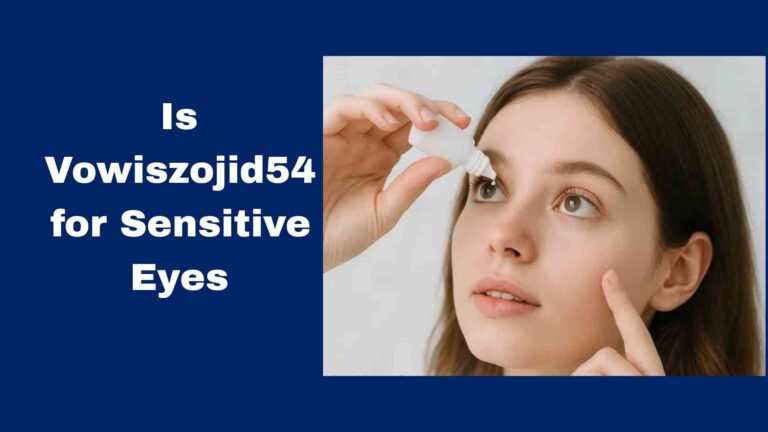
Gore Videos: Understanding Their Impact, Appeal, and Associated Complexities
Gore videos occupy a complex space in media and online culture. Loved by a niche audience but equally controversial, they raise questions about morality, psychology, and the limits of free expression. They are often graphic, unfiltered, and designed to provoke strong reactions. But what draws people to such content, and what implications do they have for both viewers and society?
This article dives deep into the topic, unraveling the layers behind gore videos, their appeal, the ethical concerns, and their broader psychological and sociocultural impacts.
What Are Gore Videos?
Gore videos are explicit visual content that often depicts scenes of violence, injuries, or death. They are usually raw, unedited footage that captures unsettling or morbid content. These videos have existed for decades, evolving from VHS tapes to now primarily circulating on online platforms.
The internet has made gore videos more accessible than ever, with websites dedicated solely to hosting this type of content. Social media also plays a role in their spread, even though such platforms often have strict policies against explicit material. While some people stumble upon this content accidentally, others actively seek it out, sometimes out of curiosity or a desire to confront the raw realities of life.
Despite their accessibility, gore videos are widely criticized. Media experts, psychologists, and ethicists often question their purpose and potential harm to viewers. However, they remain an enduring part of digital culture, blurring the lines between free speech and harmful content.
Why Do People Watch Gore Videos?
Curiosity About Raw Realities
One of the significant draws of gore videos is a desire to confront life’s darker truths. For some, these videos offer a brutal, unfiltered look at realities like war, accidents, or crime that sanitized media often omits. People who watch them argue that confronting such imagery gives them a better understanding of the world.
While this perspective may seem valid, experts warn that not everyone processes graphic content the same way. For some individuals, repeated exposure can lead to desensitization or even psychological harm.
The Thrill of the Taboo
Another key reason for watching gore videos is the allure of breaking societal norms. Viewing content that is considered “off-limits” can generate a rush of adrenaline. This thrill often appeals to people who enjoy testing personal boundaries or challenging societal taboos.
However, this behavior isn’t always positive. Experts suggest that repeatedly consuming taboo content can normalize it, potentially diminishing empathy or encouraging harmful attitudes.
Coping Mechanisms and Morbid Fascination
Believe it or not, for some people, watching gore videos serves as a coping mechanism. For example, healthcare professionals or emergency responders might watch to desensitize themselves to the harsh realities they face in their work. Meanwhile, others are driven by morbid curiosity, trying to understand humanity’s darker side.
Nevertheless, it’s crucial to recognize the psychological risks associated with this coping strategy. Engaging with graphic content for extended periods can alter one’s relationship with violence and suffering in ways that are not always healthy.
The Ethical Debate Surrounding Gore Videos
The Responsibility of Content Creators
One central ethical question is whether creating or sharing gore videos is responsible. Critics argue that filming or distributing such content, especially without consent, exploits the subjects and adds unnecessary trauma.
Creators and platform hosts often counter these arguments with appeals to freedom of speech or the right to document reality. However, ethical scholars emphasize the importance of consent and context when depicting violence or tragedy.
Desensitization and Its Consequences
Long-term exposure to gore content carries risks like desensitization, where individuals lose sensitivity to violence or tragedy. Some argue this could lead to a societal decrease in empathy—an outcome with long-term cultural consequences.
This is particularly concerning when viewed under the lens of youth exposure. Adolescents and young adults are more likely to develop lasting psychological scars due to their formative emotional and cognitive stages.
Legal Concerns and Platform Accountability
Another layer of the ethical debate involves legal issues and accountability. Many countries have stringent laws regarding explicit content, yet the global nature of the internet makes enforcement tricky. Platforms hosting such content often face criticism for not doing enough while wrestling with the balance between censorship and freedom of speech.
The Psychological Impact of Watching Gore Videos
Initial Emotional Reactions
Gore videos often provoke strong immediate reactions, including shock, disgust, or even fear. These reactions are entirely natural, as the human brain is wired to react strongly to graphic visuals. For most people, this encounter is a one-off experience they wouldn’t choose to repeat.
Long-Term Consequences
For others, particularly those exposed repetitively, watching gore videos can have lasting psychological effects. Anxiety, nightmares, or post-traumatic stress symptoms are common, especially if the content resonates with personal fears or past trauma.
While some build a tolerance over time, this isn’t always beneficial. Desensitization can lead to emotional numbing, making it harder to empathize with real-world suffering.
Expert Opinions and Studies
Psychologists frequently warn about the potential for harm, backing up their concerns with studies. For example, research has shown that exposure to explicit content activates the brain’s stress-related areas, leading to increased cortisol levels. Over time, this can disrupt emotional well-being and even physical health.
How to Handle Exposure to Gore Videos
Protecting Yourself
If you’ve stumbled across gore videos accidentally, it’s crucial not to blame yourself. Use platform settings or browser filters to ensure you don’t encounter such content in the future. If the imagery lingers, consider speaking to a mental health professional.
Educating Younger Audiences
Children and teenagers are particularly vulnerable to the negative effects of gore videos. Parents and educators should work together to promote digital literacy and teach young people how to critically engage with online content.
Reporting and Advocacy
If you encounter gore videos shared without consent or depicting illegal acts, report them to the hosting platform or appropriate authorities. Advocacy groups often work to combat the spread of non-consensual explicit material and can be valuable allies.
Table Comparing Gore Videos’ Pros and Cons
| Aspect | Pros | Cons |
|---|---|---|
| Accessibility of Reality | Offers unfiltered insights | Can desensitize viewers |
| Psychological Impact | Helps professionals prepare mentally | Causes anxiety or long-term harm |
| Ethical Implications | Documents events for awareness | Exploits victims and adds trauma |
Final Thoughts
The phenomenon of gore videos remains as controversial as it is complex. While some argue for their educational or awareness-raising value, the potential harm they pose cannot be ignored. Whether consumed out of curiosity, necessity, or thrill-seeking, viewers must approach such content cautiously.
As we continue to grapple with this controversial topic, it is clear that education, platform accountability, and ethical considerations are key to addressing the challenges associated with gore videos. Balancing free speech with responsible content regulation is a delicate dance, but one worth pursuing—for the sake of both individual mental health and societal empathy.
FAQs About Gore Videos
Why do people watch gore in the first place?
Some people are curious about the raw realities of life, while others find the taboo nature of gore videos thrilling. Others might watch to desensitize themselves, particularly if they work in high-stress professions like healthcare or law enforcement.
Is it bad for my mental health to watch gore videos?
Yes, it can be. Repeated exposure to violent or graphic content may lead to increased anxiety, desensitization, or even long-term psychological effects like PTSD. It’s better to avoid such content if possible.
What should I do if I accidentally watch a gore video?
First, take some deep breaths and remember that your reaction is normal. Use filters or settings to stop encountering similar content and consider discussing the experience with someone you trust, especially if it bothers you for a prolonged period.
Can you stop gore videos from spreading online?
It’s tough. The internet’s global nature makes it hard to enforce regulations. However, reporting such content and advocating for stricter platform policies can help curb its spread.
Suggested Meta Description
Dive into the controversial topic of gore videos and explore their impact, viewer motivations, ethical debates, and psychological effects. Learn how to protect yourself and handle exposure responsibly.







Have you ever considered about adding a little bit more
than just your articles? I mean, what you say is valuable and everything.
However think about if you added some great graphics or video clips to
give your posts more, “pop”! Your content is
excellent but with images and clips, this site could undeniably be one
of the most beneficial in its field. Good blog!